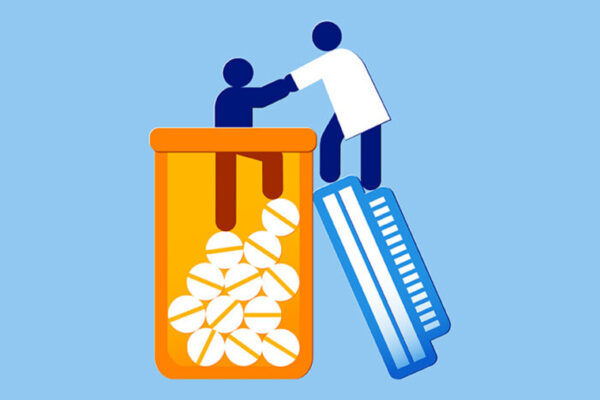Researchers to study coronavirus packaging
Andrea Soranno, Kathleen Hall and Alex Holehouse, all at the School of Medicine, received a new five-year $3.1 million grant from the National Institutes of Health (NIH) to research genome packaging of the virus that causes COVID-19.
Smoking-cessation program that targets cancer patients effective
Researchers at Siteman Cancer Center at Barnes-Jewish Hospital and Washington University School of Medicine have found a way to help more patients who want to stop smoking. The successful strategy involves using electronic medical records to help identify smokers when they visit their oncologists and offering help with quitting during such visits.
Speakers scheduled for schools’ Commencement celebrations
Several distinguished speakers, faculty members and student leaders will take part in Commencement recognition ceremonies for Class of 2022 graduates and their families and guests May 18-20 at Washington University in St. Louis.
New tech can double spectral bandwidth in some 5G systems
Using the properties of a unique class of materials, researchers, including Aravind Nagulu at the McKelvey School of Engineering, may have found a way to dramatically increase the bandwidth available for wireless communications.
Conflict-related sexual violence needs urgent action
Russia’s war in Ukraine has displaced millions of people, most of them women and children. This mounting crisis suggests that conflict-related sexual violence, which has been reported in Ukraine, requires urgent action, say Washington University in St. Louis experts on refugees and displaced populations.
Undergraduate biologists awarded 2022 Quatrano, Spector prizes
Ethan Lowder, a December 2021 graduate who majored in the biochemistry track of biology in Arts & Sciences, won the Ralph S. Quatrano Prize; Kayla Wallace, a senior majoring in environmental biology with a minor in anthropology in Arts & Sciences, received the Spector Prize.
05.11.22
Images from on and around the Washington University campuses.
Medication that lowers risk of overdose underused
Researchers at Washington University School of Medicine and Saint Louis University found that less than half of Americans who received treatment for opioid use disorder over a five-year period were offered a potentially lifesaving medication.
Parents’ mental health was worse during pandemic, study finds
Hybrid school during the COVID-19 pandemic was associated with worse parental mental health, as was working from home, finds a new study from the Brown School.
Nonlethal parasites reduce how much their wild hosts eat, leading to ecosystem effects
Research from the Living Earth Collaborative highlights the cascading consequences of common parasitic infections. Although many of these infections are not lethal, they can still impact health or animal behavior, leading hosts to eat less vegetation. The study led by biologist Amanda Koltz in Arts & Sciences is published in the Proceedings of the National Academy of Sciences.
View More Stories









